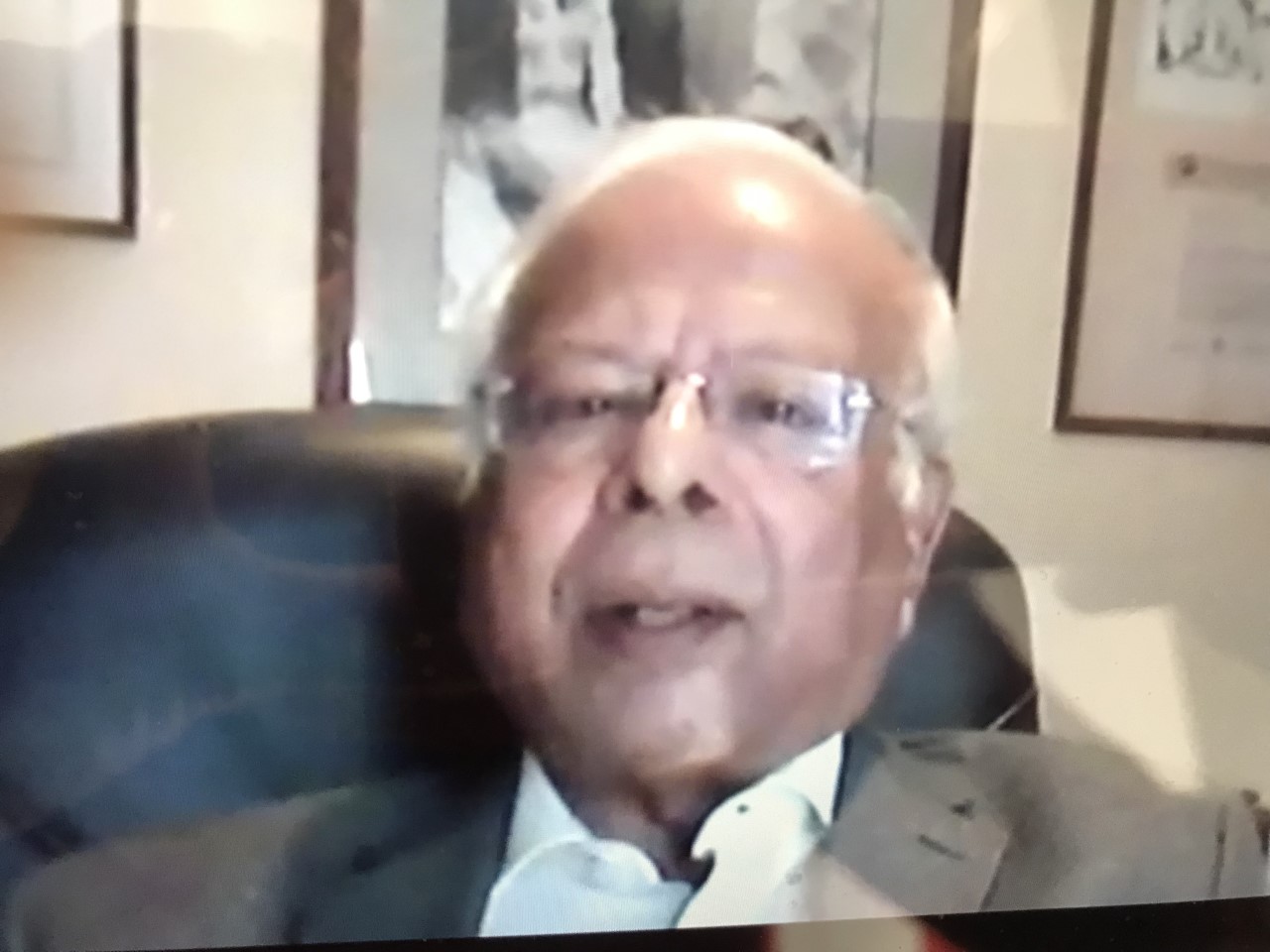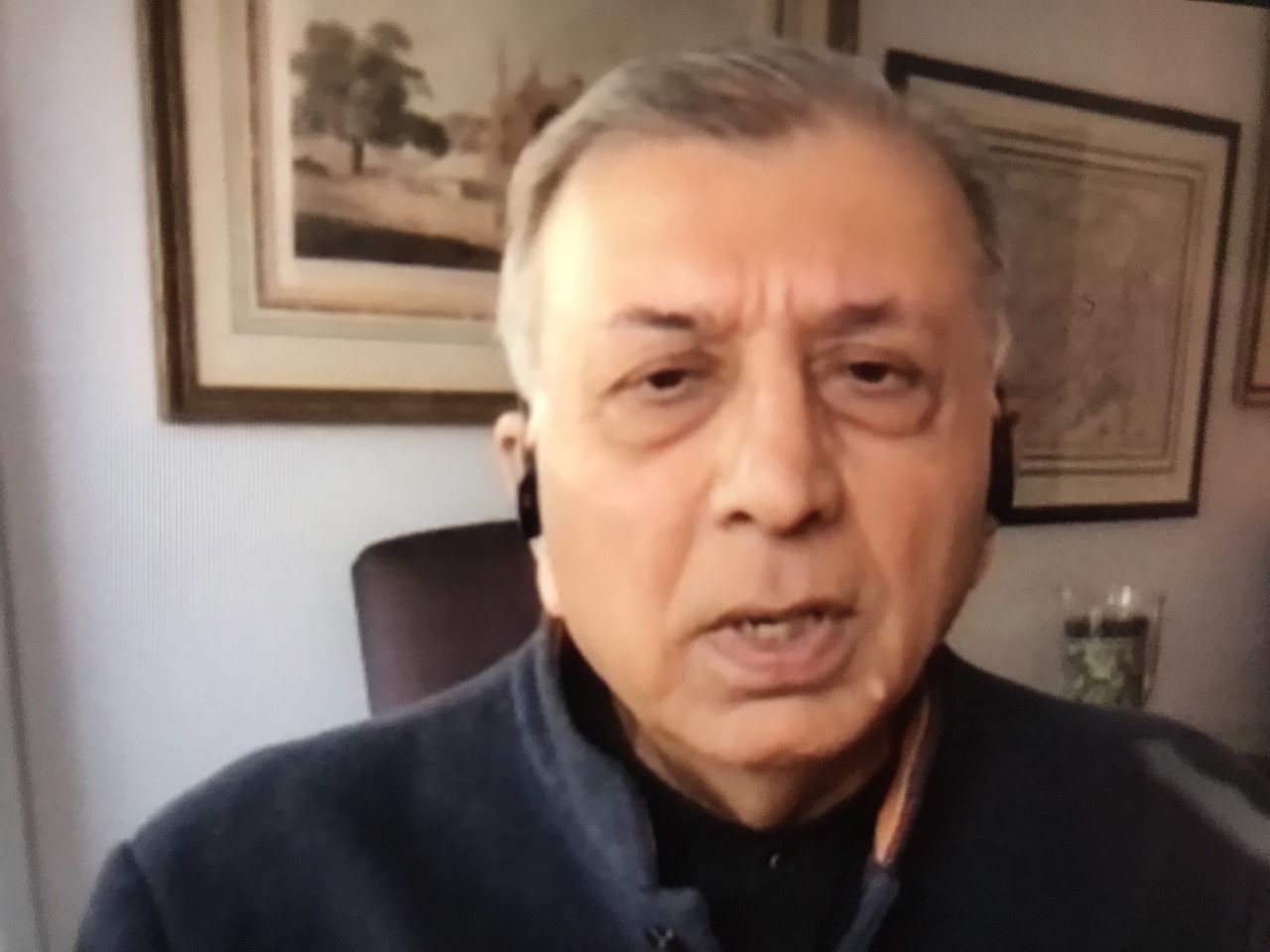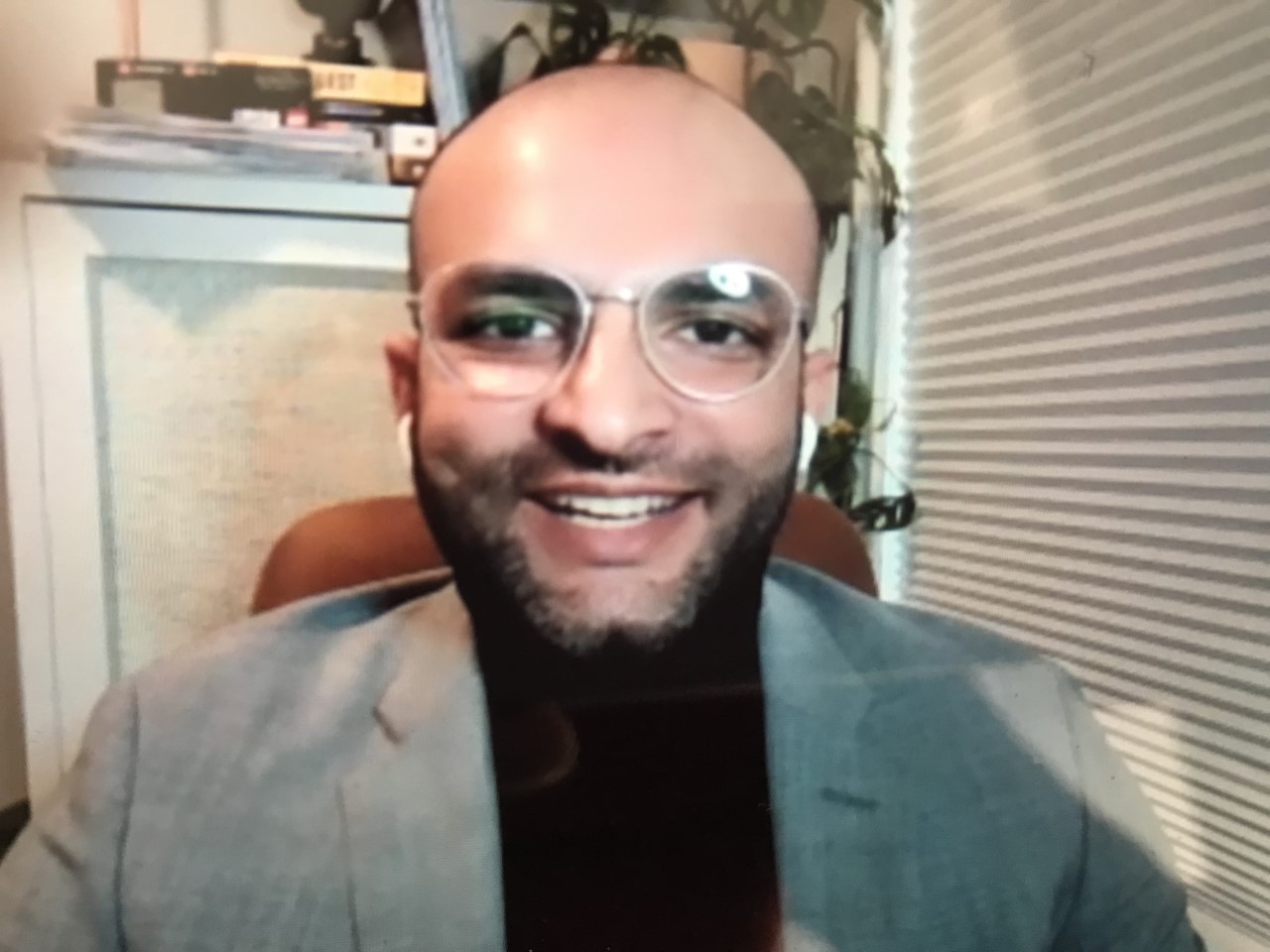Dr Ishrat Husain on CPEC and Pakistan’s Economy
By Elaine Pasquini

Washington: Pakistan’s relationship with China, particularly in light of the China-Pakistan Economic Corridor (CPEC) agreement, continues to draw close scrutiny from the United States, which is constantly obsessing on its own relationship with the government of President Xi Jinping.

Dr. Ishrat Husain
On January 7, the Atlantic Council hosted Dr Ishrat Husain, distinguished international banker, economist and former advisor to Prime Minister Imran Khan, for a conversation on CPEC and Pakistan’s economic future. Author of Governing the Ungovernable, Husain is currently a national distinguished professor and chairman for the Center of Excellence in Islamic Finance at the Institute of Business Administration in Karachi, the oldest graduate business school in Pakistan.
In opening remarks, Shuja Nawaz, distinguished fellow at the Atlantic Council’s South Asia Center, noted “The China-Pakistan Economic Corridor has been seen by many, particularly in Pakistan, as a potential game-changer.”
“All of this investment that China has promised to make in Pakistan to produce connectivity between China, the Gulf and beyond through Pakistan has been the subject of much-debated discussion,” he pointed out. “It has now also been elevated into a debate and discussion in the competition between the United States and China on the one hand and between Russia and China on the other.”

Shuja Nawaz
Entering into the CPEC agreement was meant to increase investment, in both the public sector and the private sector, as well as raise investment ratios and increase future economic growth, as Pakistan presently lags behind in investment ratio which effects its sustained economic growth, Husain said. “It’s a 15-year project from 2015 to 2030 and therefore we cannot expect all of the results in the short-term,” he said. “We have to wait for the medium and the long-term for the realization of the full benefits.”
In addition to boosting Pakistan’s exports to a “dynamic Chinese market,” Pakistan’s strategic location positions it “to be a hub of regional integration between South Asia, Central Asia and the Middle East,” Husain said.
When Pakistan initially began working with China, the focus was on short-term projects in the energy sector. “At that time Pakistan was suffering a great deal because of energy shortages,” Husain pointed out. “So out of the commitment which President Xi Jinping made for 50 years in response to Pakistan’s urgent request, $35 billion out of $50 billion was allocated for energy, $10 billion or so for infrastructure and the remaining four to five billion is a combination of grant money as well as some concessional loans given for Gwadar projects and for social-economic development of Balochistan province where Gwadar is located. So that was the conflagration of the original commitment.”
Moving to the second phase of CPEC is important because it will help both GDP growth as well as the livelihoods of the common people in the fields of industrial cooperation, agriculture sector productivity, science and technology and information technology.
Husain discussed the nine Special Economic Zones (SEZs) which are to be created, four of which are under construction. “These Special Economic Zones are open to all investors, both Pakistanis, Chinese, as well as the rest of the world,” he said.
The Gwadar port is a major element of the CPEC project because it will significantly shorten the travel time, both sea and road, from ports like Salalah to Kashgar. This is important to the Chinese and is why they are investing in the project, Husain explained.

Uzair Younus
A major concern with the Gwadar port, however, is that the local people need to benefit from the project. “They should be given preference as far as local employment opportunities are concerned,” he said. “They should be given access to the fish harbors which are their livelihood.”
“A backward province like Balochistan can only flourish if agriculture, fisheries, mining projects and livestock can be integrated into the national markets through this corridor and that will bring about a lot of calmness to the turbulence in Balochistan about CPEC,” Husain continued. “I think the government is on the right track. As far as labor is concerned, you can find unskilled labor, but…CPEC is trying to create vocational and training institutions to cater to the specific demands of the industries that are being located in the Gwadar free zone.”
Uzair Younus, director of the Pakistan Initiative at the Atlantic Council’s South Asia Center, asked Dr Husain about the significant amount of start-up funding coming into Pakistan’s economy from the United States. Noting that the full agenda of reforms has not yet been achieved, he questioned how younger tech workers could push reforms and unleash Pakistan’s youth potential.
For the last three years there has been an opening up of the process of recruiting of chief directors of all state-owned corporations in a transparent and open manner based on merit, Husain responded. “I’m glad to report that a lot of younger, ex-patriot Pakistanis have left their jobs in New York, Hong Kong, Singapore, Dubai and London to head these institutions.” The young workers told him they believed they were hired for their merit.
Navigating Pakistan’s relationship with both the US and China, is a constant topic of interest for Pakistan-watchers especially in the United States.
As a veteran diplomat as well as an economist, Husain believes that Pakistan should have good relations with both China and the United States. “These are two great powers and each one has something to offer to Pakistan and Pakistan has something to offer to them. So, I do not think that we can have a kind of exclusive arrangement either with China or the United States.”
Pointing out the very good historical relations Pakistan and the United States have enjoyed since the 1950s, this “augers well to be continued for the future,” he said. “I still believe that in a knowledge economy of the 21st century you cannot actually progress without the United States.”
(Elaine Pasquini is a freelance journalist. Her reports appear in the Washington Report on Middle East Affairs and Nuze.Ink.)
-----------------------------------------------------------------------------
Back to Pakistanlink Homepage

